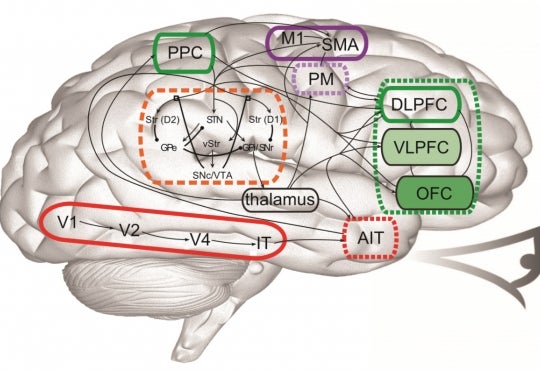Did you know that the University of Waterloo (UWaterloo) has been named the most innovative university in Canada for the last 25 years? UWaterloo has also been voted #1 for experiential learning [1]. At UWaterloo, learning extends beyond academic courses. There are numerous opportunities offered that help to expand your learning. This article will explore just some of the incredible resources tailored to learning at UWaterloo.
Interpersonal skills

Interpersonal skills are a set of aptitudes that allow a person to interact and work effectively with others [2]. In customer-facing technical roles, it is important to be able to listen to customers and to translate problems and solutions between technical language and what the person you’re working with understands. UWaterloo has many resources available that help students, staff and faculty build leadership skills, presentation skills and more.
Students
Student Leadership Program (SLP)
The Student Leadership Program (SLP) offers a set of twelve leadership workshops that are free to any current UWaterloo student. The program is designed to build many of the interpersonal skills that are essential to effective leadership. Courses range from learning the principles of leadership, to exploring personality dimensions, to touching up presentation skills. Students can complete the twelve workshops in any order and receive an e-certificate signed by Dr. Feridun Hamdullahpur, the University of Waterloo’s President. Visit the Student Leadership Program page to learn more [3].
“As a coop student at the Arts Computing Office (ACO) it was required that we took two SLP courses over the work term. These workshops are filled with friendly students and facilitators that encourage you to challenge your weaknesses and fears. Following my work term, I continued to attend these SLP courses to strengthen my leadership capabilities. I am now only a few courses away from obtaining my certificate.”
Staff and Faculty
Core development workshops
The office of Organizational and Human Development (OHD) offers a wide variety of courses for employee learning and development. OHD courses allow employees to enhance their performance at UWaterloo. Core development are workshops that offer several courses centered on leadership, integrity, service, and inclusivity. To view all offered courses, please visit the Core development workshop page.
Professional development
Professional development is the process of improving capabilities used on the job through access to education, and training opportunities [4]. Below are just some of the many professional development resources UWaterloo offers.
Students, Staff and Faculty
CareerHub
Are you looking to take the next step in planning your future? CareerHub prepares you to talk to employers, write unique resumes and cover letters, and guides you through post-graduate education and career options. Students, staff, faculty and alumni can learn how to channel their entrepreneurial interests through CareerHub. A student within a CareerHub focus group said:
“CareerHub is a tool to help kick-start careers whether its further education, self-marketing, or building a career path. It gives you tools & resources to better your resume, find work, or apply to further education.”
Below are some of the many resources CareerHub provides:

MY DEGREE & SKILLS
This feature allows you to explore a series of skills that you can apply in your workplace, classroom and everyday life. Learn about technical skills, transferable skills, and personal attributes. This feature allows people to explore skills by faculty, program or by skills that employers are looking for. Use this feature to become more comfortable discovering your skills and using them to take control of your future.
DECISION MAKING
Learn about the foundations of decision making starting with a self-assessment to help reveal your interests, values, skills and personality preferences. A self-assessment is an essential step in making career choices that are suitable for you. This feature allows you to learn about the career decision-making process and gives you access to a series of activities that help guide you in the direction of keen decision-making.
SELF-MARKETING
Covering anything from resumes, cover letters, and interviews, this feature allows you to build on your self-marketing skills. Learn about the importance of networking, negotiating job offers and how to use ePortfolios to display your skills.
WORK: FIND/CREATE
Find the right connection to a job, whether that be through working in Canada or finding opportunities outside of Canada. If you are interested in creating your own work, learn skills about how to be a successful entrepreneur. Within this feature, informational videos such as “standing out” are provided to help you find the job best suited to you.
SUCCESS AT WORK
Uncover training courses and openings available for employees, students and alumni on and off campus. Explore opportunities to work both inside and outside of Canada and work on your professional development with this feature.
FURTHER EDUCATION
Within this feature, learn how to plan for the future, tips for applying and interviewing, and what programs you can pursue in university.
To access these resources, please visit the CareerHub page [5].
Staff and Faculty
Skills for the Academic e-Workplace (SAW)
Skills for the Academic e-Workplace (SAW) offer courses that are designed to educate students, staff and faculty on computing skills and document preparation.
Once every term, SAW offers a “managing theses” course on-campus that is available to anyone interested in thesis writing and for students who are required to write a thesis for their degree. Cassandra Bechard, SAW course instructor said:
“This course has value to anyone writing a thesis in Microsoft Word, especially to those who are about to begin or have just begun the writing phase. The features taught in this course are real time savers in the long run, allowing graduate students to focus on the content of their thesis, rather than manually formatting it to meet University and field of study requirements.”
For SAW courses that are unavailable on campus, course notes and templates are provided for online learning. To access these course notes, visit the SAW course brochure page [6].
Oral and written communication
Effective communication is one of the pillars of teamwork and successful projects. Oral communication is the exchange of ideas, information and messages through spoken words. Written communication is the interchange of message, opinions and information through written forms [7]. You can improve these essential skills through the resources offered here at UWaterloo.
Staff and Faculty
Business Communications
Business Communications is a six-part program offered through OHD that provides staff and faculty with strategies in oral and written communication. These workshops will uncover processes of communication and help facilitate improved decision making in the UWaterloo environment. After completing the six workshops, participants will receive a business communication certificate to demonstrate completion of the program. To view available courses, please visit the Business Communications page [8].
Students
Writing Centre
The Writing Centre at UWaterloo primarily focuses on providing students with strategies for writing and communication for use in emails and professional documents. Topics include genres and modes of communication, organization, style, mechanics, citations and polishing your works.
“Using the Writing Centre is by far the most productive writing moment of my career and this is entirely due to the advice and guidance provided by the Writing Centre staff on a wide range of writing issues. They helped me identify writing goals, develop (and continue to revise) a “big picture” writing plan, and organize weekly and daily writing sessions.”
To view PDF notes on writing strategies, please visit the Writing resources page [9].
This article outlined a few of the many resources UWaterloo offers to expand on learning. Visit current student pathways, faculty pathways and staff pathways to explore more options available at UWaterloo.
References
[1] “Waterloo facts.” University of Waterloo. Web. 24 January 2017. <https://uwaterloo.ca/about/who-we-are/waterloo-facts>.
[2] “Interpersonal skill.” Business Dictionary. Web. 2 February 2017. <http://www.businessdictionary.com/definition/interpersonal-skill.html>.
[3] “Student Leadership Program.” University of Waterloo. Web. 24 January 2017. <https://uwaterloo.ca/student-success/slp>.
[4] “Professional development.” Business Dictionary. Web. 6 February 2017. <http://www.businessdictionary.com/definition/professional-development.html>
[5] “CareerHub.” University of Waterloo. Web. 24 January 2017. <https://careerhub.uwaterloo.ca/>.
[6] “Skills for the Academic Workplace (SAW) course brochure.” University of Waterloo. Web. 24 January 2017. <https://uwaterloo.ca/information-systems-technology/services/skills-academic-e-workplace-saw-courses/skills-academic-workplace-saw-course-brochure>.
[7] “Difference between Oral Communication and Written Communication.” Key Differences. Web. 6 February 2017. <http://keydifferences.com/difference-between-oral-communication-and-written-communication.html>
[8] “Business Communications.” Organizational & Human Development. Web. 6 February 2017. <https://uwaterloo.ca/organizational-human-development/staff-workshops/business-communications>
[9] “Writing resources.” University of Waterloo. Web. 6 February 2017. <https://uwaterloo.ca/writing-centre/writing-resources>
[10] [Learning]. (n.d.). Retrieved from http://www.curriculumresources.net/wp-content/uploads/2016/03/colorful-lightbulb.jpg













